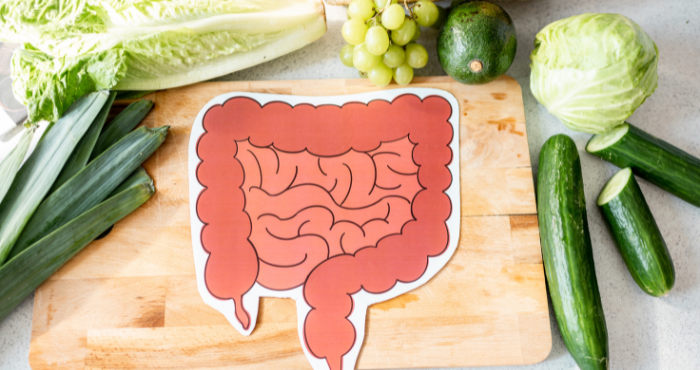The Gut-Immune Connection: Why Your Digestion Affects Everything
Have you ever wondered why stomach problems often come hand-in-hand with fatigue, brain fog, skin issues, or even frequent colds? It’s not just a coincidence. Your gut plays a far bigger role in your overall health than most people realize and it all comes down to the powerful connection between your digestive system and your immune system.
Understanding this link can be a game changer for how you approach your health. If you’re dealing with chronic symptoms and haven’t found answers, it might be time to look deeper into your gut and how it’s influencing your whole body.
Your Gut: More Than Just Digestion
When people think of digestion, they usually picture food being broken down in the stomach and intestines. But your gut does a lot more than help you absorb nutrients it’s also home to about 70% of your immune system.
Inside your intestines lives a vast community of bacteria, viruses, and fungi known as the gut microbiome. These microorganisms help digest food, make vitamins, and train your immune cells to respond properly to threats. A healthy gut keeps the good bacteria in charge and helps your immune system stay strong and balanced.
When your gut is out of balance, though, it can cause inflammation in the body, lower immunity, and even trigger autoimmune issues.
How Gut Health Affects Immunity

Your immune system relies on good gut health to work correctly. Here’s how the connection plays out:
- Barrier Protection: Your gut lining acts like a protective wall, keeping harmful substances out of your bloodstream. When this barrier is weakened, a condition some call “leaky gut,” toxins and bacteria can slip through, triggering an immune response.
- Microbiome Balance: The mix of bacteria in your gut helps regulate your immune response. An imbalance (called dysbiosis) can lead to overactive immunity, resulting in allergies, skin problems, or autoimmune issues.
- Inflammation Control: A healthy gut helps keep inflammation levels in check. Chronic inflammation can develop and affect joints, energy levels, brain function, and more when your gut is unhealthy.
Signs Your Gut May Be Affecting Your Immune System
You might not always feel gut symptoms directly. Sometimes, signs of poor gut health appear in other areas of the body. Here are some clues:
- Frequent colds or infections
- Bloating or gas after meals
- Constipation or diarrhea
- Fatigue that doesn’t improve with rest
- Brain fog or difficulty concentrating
- Skin issues like acne, eczema, or rashes
- Food sensitivities or allergies
- Joint pain or stiffness
These symptoms may seem unrelated, but they often involve inflammation and an overworked immune system triggered by gut problems.
What Causes Gut Imbalance?
Many factors can throw your gut out of balance:
- Processed foods and low-fiber diets
- High sugar intake
- Frequent antibiotic use
- Chronic stress
- Lack of sleep
- Environmental toxins
- Hidden infections or parasites
These can damage your gut lining, change your microbiome, and weaken your immune system’s ability to do its job.
How Functional Medicine Approaches Gut and Immune Health

Functional Medicine takes a different approach from conventional care. Instead of only treating symptoms, it asks: What’s causing the imbalance in the first place?
Practitioners use advanced tools to uncover root causes, including hidden food sensitivities, infections, or gut imbalances. With this information, they design personalized plans to support digestive and immune health.
This often includes:
- Comprehensive testing (such as stool analysis or food sensitivity testing)
- Anti-inflammatory nutrition plans tailored to the person
- Targeted supplements for healing the gut lining and restoring the microbiome
- Stress-reduction strategies to lower cortisol, which affects gut function
- Lifestyle shifts like better sleep and movement routines
This root-cause approach is constructive for people with long-standing or complex symptoms who haven’t found relief elsewhere.
Simple Ways to Support Gut and Immune Health
Even if you’re not working with a practitioner yet, there are simple things you can do daily to support your gut and immune system:
1. Eat Whole, Fiber-Rich Foods
Fiber feeds the good bacteria in your gut. Aim for lots of vegetables, fruits, legumes, and whole grains. Foods like garlic, onions, asparagus, and bananas act as prebiotics to fuel healthy microbes.
2. Add Fermented Foods
Fermented foods like sauerkraut, kimchi, yogurt, and kefir contain natural probiotics that help replenish good bacteria and support digestion.
3. Stay Hydrated
Water helps your body flush waste and keeps the digestive tract moving properly.
4. Manage Stress
Stress directly affects the gut. Meditation, deep breathing, nature walks, or journaling can all help calm the nervous system and reduce gut inflammation.
5. Sleep Matters
Quality sleep helps your body repair the gut lining and regulate immunity. Try to get 7–9 hours per night and keep a consistent sleep routine.
6. Limit Sugar and Processed Foods
These can feed harmful bacteria and yeast in the gut, worsening inflammation and immune dysfunction.
When to Seek Help
If your symptoms have been lingering for more than a few months or if they keep coming back despite your best efforts, it may be time to dig deeper. A professionally trained practitioner in functional or holistic medicine can guide you through testing and create a personalized plan based on your body’s needs.
Getting to the root of gut dysfunction often relieves digestive symptoms and fatigue, immune issues, skin problems, and even mental clarity.
The Bigger Picture
Your gut isn’t just about digestion it’s a central part of your entire health system. It connects with your brain, immune system, and hormones. That’s why healing your gut can improve how you feel across the board.
When you take steps to improve your gut health, you’re not just helping your stomach you’re supporting your energy, immune defenses, mood, and even long-term wellness.
Final Thoughts
Your gut and immune system are deeply connected, and when one is out of balance, the other struggles too. If you’re experiencing chronic symptoms or just don’t feel your best, don’t ignore what your body is trying to tell you.
Looking at your health through the lens of Functional Medicine offers a chance to uncover what’s really going on beneath the surface and helps you create a path toward real, lasting wellness.
If you’re ready to take a deeper look at your gut and immune health, Wellness Synergy is here to support you with tools and guidance tailored to your body’s unique needs.
Frequently Asked Questions
How does gut health affect the immune system?
Your gut is home to about 70% of your immune system. The lining of your gut acts as a protective barrier, while the gut microbiome (the community of bacteria living in your intestines) helps train and regulate immune responses. When your gut is imbalanced or inflamed, it can lead to a weakened immune system, frequent infections, and even autoimmune conditions.
What are signs of an unhealthy gut?
Common signs of poor gut health include:
- Bloating, gas, or irregular bowel movements
- Food sensitivities
- Brain fog or fatigue
- Skin issues like acne or eczema
- Frequent colds or infections
- Joint pain or inflammation
These symptoms may not always seem digestive, but they often trace back to underlying gut dysfunction.
Can stress really affect my gut health?
Yes. Chronic stress negatively impacts your gut by changing the balance of bacteria, increasing gut permeability (leading to “leaky gut”), and suppressing digestion. This can result in more inflammation and a reduced ability to fight off infections. Managing stress is essential for both gut and immune health.
What foods help restore gut health?
Foods that support gut health include:
High-fiber vegetables and fruits (like leafy greens, berries, and carrots)
Fermented foods (such as sauerkraut, yogurt, kimchi, and kefir)
Prebiotic-rich foods (like garlic, onions, asparagus, and bananas)
Bone broth (to help soothe and heal the gut lining)
Limiting sugar, alcohol, and processed foods is also key.
When should I see a professional for gut issues?
If your symptoms have lasted more than a few months or keep recurring despite diet and lifestyle changes, it’s time to seek help. A Functional or holistic medicine practitioner can run advanced testing to identify hidden imbalances and create a personalized plan. Getting professional support can help resolve chronic symptoms and improve overall well-being.


